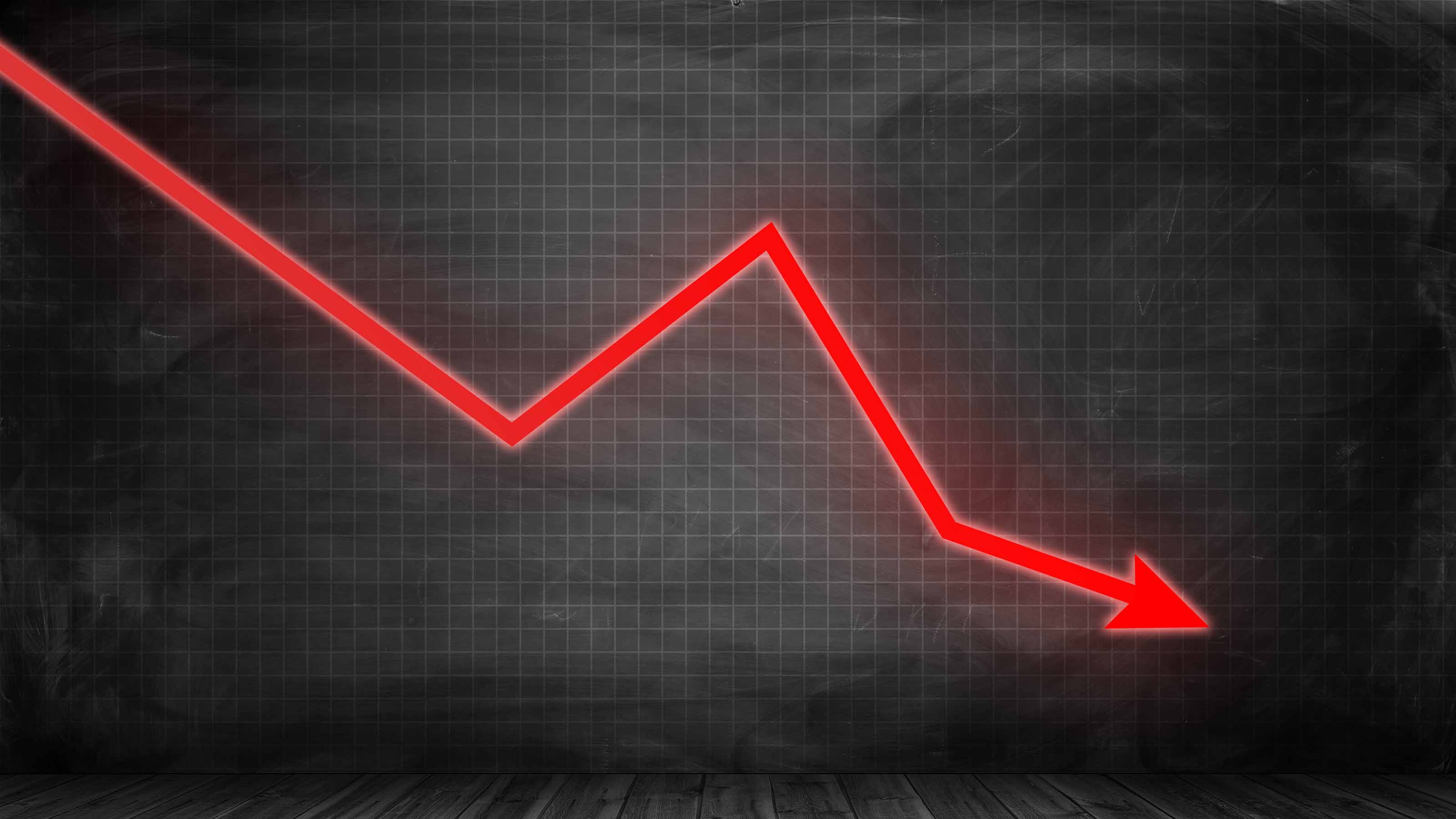Stock Market Today: Stocks End Lower on Economic Data, Earnings
Today's economic reports showed the labor market remains hot, while housing continues to cool.


Profit and prosper with the best of Kiplinger's advice on investing, taxes, retirement, personal finance and much more. Delivered daily. Enter your email in the box and click Sign Me Up.
You are now subscribed
Your newsletter sign-up was successful
Want to add more newsletters?

Delivered daily
Kiplinger Today
Profit and prosper with the best of Kiplinger's advice on investing, taxes, retirement, personal finance and much more delivered daily. Smart money moves start here.

Sent five days a week
Kiplinger A Step Ahead
Get practical help to make better financial decisions in your everyday life, from spending to savings on top deals.

Delivered daily
Kiplinger Closing Bell
Get today's biggest financial and investing headlines delivered to your inbox every day the U.S. stock market is open.

Sent twice a week
Kiplinger Adviser Intel
Financial pros across the country share best practices and fresh tactics to preserve and grow your wealth.

Delivered weekly
Kiplinger Tax Tips
Trim your federal and state tax bills with practical tax-planning and tax-cutting strategies.

Sent twice a week
Kiplinger Retirement Tips
Your twice-a-week guide to planning and enjoying a financially secure and richly rewarding retirement

Sent bimonthly.
Kiplinger Adviser Angle
Insights for advisers, wealth managers and other financial professionals.

Sent twice a week
Kiplinger Investing Weekly
Your twice-a-week roundup of promising stocks, funds, companies and industries you should consider, ones you should avoid, and why.

Sent weekly for six weeks
Kiplinger Invest for Retirement
Your step-by-step six-part series on how to invest for retirement, from devising a successful strategy to exactly which investments to choose.
Selling continued Thursday, with stocks spending the whole day in negative territory – though they did end well off their session lows. Today's declines came as investors unpacked updates on the labor and housing markets, as well as the latest round of corporate earnings reports.
Diving right into those economic reports, the Labor Department this morning said weekly jobless claims fell by 15,000 last week to 190,000 – their lowest level since September. "U.S. stocks are declining after another labor market statistic shows that despite all the big-tech post-pandemic layoffs, the jobs market remains hot," says Edward Moya, senior market strategist at currency data provider OANDA. "The labor market needs to break to allow the Fed to comfortably keep rates on hold."
From just $107.88 $24.99 for Kiplinger Personal Finance
Become a smarter, better informed investor. Subscribe from just $107.88 $24.99, plus get up to 4 Special Issues

Sign up for Kiplinger’s Free Newsletters
Profit and prosper with the best of expert advice on investing, taxes, retirement, personal finance and more - straight to your e-mail.
Profit and prosper with the best of expert advice - straight to your e-mail.
Meanwhile, data from the Commerce Department showed construction of new homes fell a seasonally adjusted 1.4% month-over-month in December to 1.38 million units, the fewest since June 2022. Year-over-year, housing starts were down 21.8%. Building permits also declined from November to December, falling 1.6% to 1.33 million.
"What just some weeks ago would have seen markets cheering the weaker data as it would have suggested correctly that the Fed's aggressive rate hike campaign is doing its job in tamping down the demand side of the economy, is now being judged more harshly with bad news no longer enjoying a warm welcome by traders and investors alike," says Quincy Krosby, chief global strategist at LPL Financial.
As for earnings, Procter & Gamble (PG, -2.2%) was a notable decliner on quarterly results. In its fiscal second quarter, the consumer staples giant said earnings fell 4.2% year-over-year to $1.59 per share. Revenue was down 1% to $20.8 billion, marking the first year-over-year decline in quarterly sales since June 2017.
It all added up to more losses for the major benchmarks. The Dow Jones Industrial Average gave back 0.8% to 33,044, the S&P 500 shed 0.8% to 3,898, and the Nasdaq Composite lost 1.0% to 10,852.
The Best Stocks to Ride Out a Volatile Market
Today's jobs data shows that the debate remains open as to when we will see the labor market lose some of its resiliency amid the Federal Reserve's efforts to cool inflation with ambitious interest-rate hikes, says Mike Loewengart, head of model portfolio construction at Morgan Stanley. "And when considering that the overall earnings picture continues to be a mixed bag, investors shouldn’t be surprised to see more volatility in the weeks ahead."
This could lead to some short-term stomachaches for investors, but they would be wise to remember that investing is a marathon and not a sprint. In other words, stay focused on high-quality names that can ride out the storm. As we've mentioned in this space before, the best dividend stocks, like those found among the Dividend Kings, can offer investors peace of mind. There's also our list of the best stocks to buy now, which are well-positioned to outlast the ups and downs of an uncertain market backdrop.
Profit and prosper with the best of Kiplinger's advice on investing, taxes, retirement, personal finance and much more. Delivered daily. Enter your email in the box and click Sign Me Up.

With over a decade of experience writing about the stock market, Karee Venema is the senior investing editor at Kiplinger.com. She joined the publication in April 2021 after 10 years of working as an investing writer and columnist at a local investment research firm. In her previous role, Karee focused primarily on options trading, as well as technical, fundamental and sentiment analysis.
-
 Dow Adds 1,206 Points to Top 50,000: Stock Market Today
Dow Adds 1,206 Points to Top 50,000: Stock Market TodayThe S&P 500 and Nasdaq also had strong finishes to a volatile week, with beaten-down tech stocks outperforming.
-
 Ask the Tax Editor: Federal Income Tax Deductions
Ask the Tax Editor: Federal Income Tax DeductionsAsk the Editor In this week's Ask the Editor Q&A, Joy Taylor answers questions on federal income tax deductions
-
 States With No-Fault Car Insurance Laws (and How No-Fault Car Insurance Works)
States With No-Fault Car Insurance Laws (and How No-Fault Car Insurance Works)A breakdown of the confusing rules around no-fault car insurance in every state where it exists.
-
 The New Fed Chair Was Announced: What You Need to Know
The New Fed Chair Was Announced: What You Need to KnowPresident Donald Trump announced Kevin Warsh as his selection for the next chair of the Federal Reserve, who will replace Jerome Powell.
-
 If You'd Put $1,000 Into AMD Stock 20 Years Ago, Here's What You'd Have Today
If You'd Put $1,000 Into AMD Stock 20 Years Ago, Here's What You'd Have TodayAdvanced Micro Devices stock is soaring thanks to AI, but as a buy-and-hold bet, it's been a market laggard.
-
 January Fed Meeting: Updates and Commentary
January Fed Meeting: Updates and CommentaryThe January Fed meeting marked the first central bank gathering of 2026, with Fed Chair Powell & Co. voting to keep interest rates unchanged.
-
 Nasdaq Adds 211 Points as Greenland Tensions Ease: Stock Market Today
Nasdaq Adds 211 Points as Greenland Tensions Ease: Stock Market TodayWall Street continues to cheer easing geopolitical tensions and President Trump's assurances that there will be no new tariffs on Europe.
-
 If You'd Put $1,000 Into UPS Stock 20 Years Ago, Here's What You'd Have Today
If You'd Put $1,000 Into UPS Stock 20 Years Ago, Here's What You'd Have TodayUnited Parcel Service stock has been a massive long-term laggard.
-
 Dow Dives 870 Points on Overseas Affairs: Stock Market Today
Dow Dives 870 Points on Overseas Affairs: Stock Market TodayFiscal policy in the Far East and foreign policy in the near west send markets all over the world into a selling frenzy.
-
 How the Stock Market Performed in the First Year of Trump's Second Term
How the Stock Market Performed in the First Year of Trump's Second TermSix months after President Donald Trump's inauguration, take a look at how the stock market has performed.
-
 The December CPI Report Is Out. Here's What It Means for the Fed's Next Move
The December CPI Report Is Out. Here's What It Means for the Fed's Next MoveThe December CPI report came in lighter than expected, but housing costs remain an overhang.